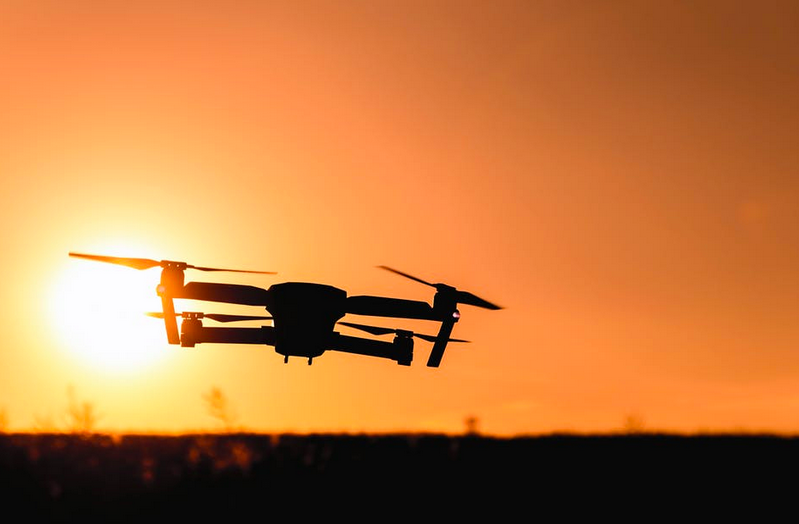Drone technology is expected to transform many industries and contribute £1.1 billion to UK GDP by 2030 according to new research.
The electricity, gas, mining and agriculture sectors are likely to account for a third of the 76,000 drones that will be in the skies by that time.
Skies without limits, a report by PwC, analyses the broader economic impact from drone technology, with a particular focus on seven sectors. Drones are being used in applications from flame-throwing to clearing rubbish from power lines.
It says the uplift in drone usage could grow UK GDP by £42 billion (or 2%) by 2030.
The analysis also reveals that rising use of drone technology has the potential to save the UK up to £16bn in costs by 2030 through increasing productivity, with the electricity, gas, mining and agriculture sector set to benefit by £0.1bn.
In addition, as many as 4,800 drones could be employed in the construction and manufacturing sector, and could boost UK GDP by £8.6bn by 2030.
A new innovation centre has opened in Edinburgh, offering start-up companies direct access to world leading scientists, engineers and big data experts.
The Higgs Centre for Innovation offers specialist expertise and support in space-related technology and big-data analytics. Up to 12 companies will be based in the Centre at any one time and will work next to researchers and engineers from both STFC’s UK Astronomy Technology Centre and the University of Edinburgh.
The Higgs Centre for Innovation is funded through a £10.7m investment from the UK Government through the Science and Technology Facilities Council (STFC) and STFC is also investing £2m over the next five years to operate the Centre.
The Centre incorporates laboratories and working spaces for researchers, and facilities suitable for businesses, and includes a Business Incubation Centre (BIC) based on the successful European Space Agency model already in operation in the UK.
The Centre, Operated by STFC, will also support new academic activities and enable the University’s astronomy and astrophysics PhD students to work directly with start-up companies to solve real-world problems.
A web developer has revealed an unexpected benefit of GDPR; its potential to have megabytes-worth of tracking scripts removed from sites, making them much faster to load.
Marcel Freinbichler, an Austrian developer, looked at the sites of USA Today and The Verge, and the different ways they were approaching GDPR compliance. In both cases, significant time-savings are achieved as a result.
“Because of GDPR, USA Today decided to run a separate version of their website for EU users, which has all the tracking scripts and ads removed,” said Freinbichler. “The site seemed very fast, so I did a performance audit.
“How fast the internet could be without all the junk! 5.2MB → 500KB. They went from a load time of more than 45 seconds to 3 seconds, from 124 JavaScript files to 0, and from a total of more than 500 requests to 34,” he explained.
Chartered Accountants Ireland and ICAS, the professional body for accountants headquartered in Scotland, have issued a joint call to the Irish and UK governments to introduce legislation to alleviate the VAT burden on importers after Brexit.
An often overlooked side-effect of Brexit is that VAT will become an upfront cost for imports between Ireland and the UK for the first time after Brexit, if the current law is not changed.
UK and Irish businesses that regularly trade with one another will face a heavy cash flow burden as they will be forced to pay VAT, along with customs duties, at the time goods are imported and then recover the costs later.
Given that more than €30 billion of goods are exchanged between the two jurisdictions every year, this major change will cause significant upheaval to every business involved in imports.
At the moment, VAT on imports between EU countries is paid when VAT returns are filed; which in many cases can be several weeks later. Once the UK leaves the EU, the practice of paying VAT will differ drastically.







